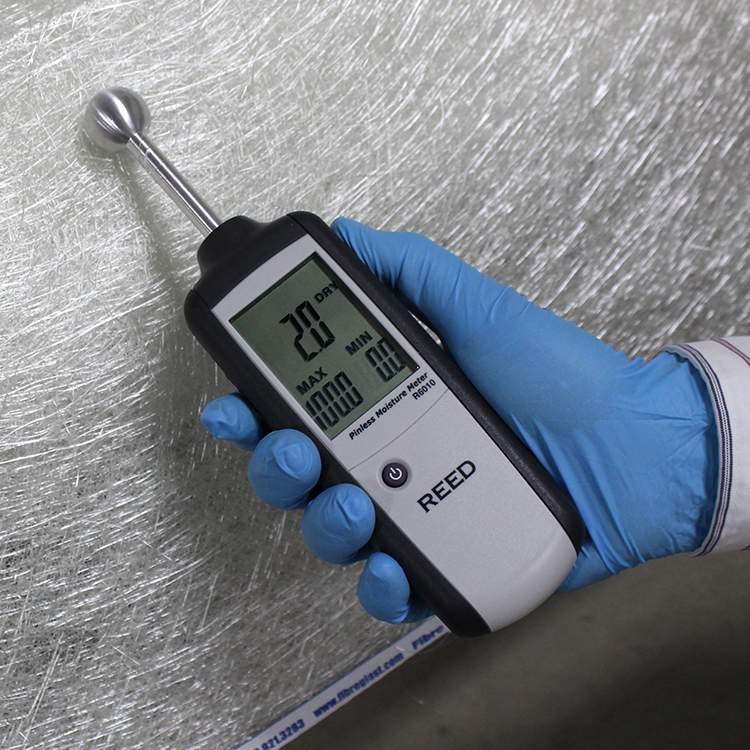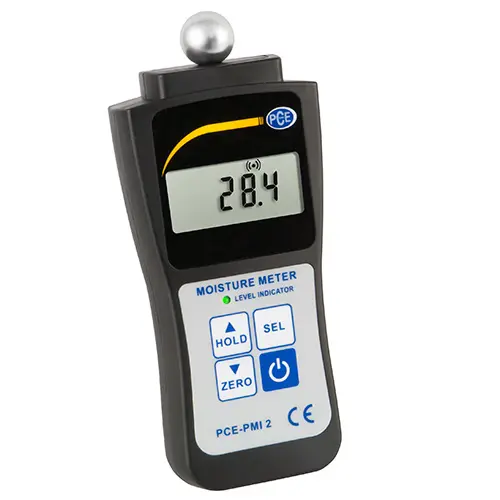The Ultimate Guide to Moisture Meters: A Comprehensive Summary and Just How They Can Save You Money
In the world of structure maintenance, construction, and numerous sectors, the importance of precisely gauging moisture levels can not be overemphasized. Moisture meters act as essential tools in discovering and keeping an eye on moisture content in products, assisting in stopping costly problems and ensuring the high quality of products. Understanding the nuances of different sorts of moisture meters, their applications, and the prospective cost-saving benefits they supply can be a game-changer for specialists and organizations alike. Uncovering exactly how these tools can not only simplify processes yet additionally add to financial savings is a trip worth starting.
Types of Moisture Meters
One typical type is the pin-type moisture meter, which determines the electrical resistance between two pins inserted right into a material. Pinless moisture meters, on the other hand, use electromagnetic sensor plates to scan a larger area without triggering damages to the product's surface area.
Furthermore, there are also specialized dampness meters developed for particular materials like grain, hay, or dirt. These meters provide exact wetness readings tailored to the unique residential or commercial properties of the material being examined. Infrared dampness meters measure the thermal residential or commercial properties of a product to establish its moisture material non-invasively, making them beneficial for applications where pin or pinless meters might not be suitable. Understanding the different kinds of dampness meters readily available can help markets select the most ideal tool for their particular dampness measurement needs.

Benefits of Utilizing Moisture Meters

In addition, using dampness meters can cause increased energy effectiveness. By recognizing locations with high moisture degrees, such as leaks or inadequate insulation, modifications can be made to enhance power conservation and reduce energy costs. In agricultural setups, wetness meters play an important role in enhancing plant returns by making it possible for farmers to keep an eye on dirt wetness degrees and make educated watering decisions. have a peek here Generally, the benefits of making use of wetness meters span across various sectors, providing affordable options and advertising far better quality assurance practices.
Just How to Choose the Right Moisture Meter
Selecting the appropriate dampness meter includes thinking about vital variables such as material compatibility, measurement range, and calibration accuracy. When picking a dampness meter, it's necessary to ensure that the meter is appropriate for the details material you will certainly be screening. Different products have differing electrical residential properties that can impact dampness readings, so picking a meter made for your product is important for precise results. Furthermore, consider the measurement array of the moisture meter. Make certain that the their website meter can discover wetness degrees within the range required for your applications. Calibration precision is one more crucial element to remember (Moisture Meter). Select a wetness meter with trustworthy calibration to make sure precise and consistent readings. Some meters might require routine calibration changes, so comprehending the calibration procedure is very important. By meticulously reviewing these elements, you can select a wetness meter that meets your needs and supplies accurate wetness measurements for your jobs.
Correct Techniques for Moisture Meter Usage
To make sure exact dampness analyses and optimize the performance of a dampness meter, employing correct techniques is vital. When utilizing a pin-type wetness meter, put the pins or probes right into the product being evaluated up until they make full call. By following these appropriate methods, users can count on their dampness meter to provide credible moisture levels, aiding in stopping expensive damage or making certain top quality in various applications.

Expense Savings Via Moisture Meter Applications
How can the strategic utilization of wetness directory meters lead to significant cost financial savings throughout various industries? In the farming industry, wetness meters aid in determining the optimum time for collecting crops, preventing excess or over-drying moisture that can impact the final item's high quality.

Additionally, in the food processing sector, dampness meters are essential for monitoring item quality and making sure conformity with safety regulations. By accurately gauging wetness web content in food, manufacturers can protect against putridity, maintain quality, and lower waste, resulting in significant price savings. Generally, the calculated application of moisture meters is an important financial investment that can lead to significant expense decreases and enhanced efficiency throughout various industries.
Final Thought
To conclude, dampness meters are beneficial tools for determining and detecting wetness degrees in different products. By utilizing the ideal moisture meter and adhering to correct methods, users can successfully protect against expensive problems brought on by excess dampness. Buying a high quality dampness meter can bring about considerable cost financial savings over time by identifying potential concerns early on and enabling timely remediation. Ultimately, dampness meters are necessary instruments for keeping the honesty and long life of structures and products.
Moisture meters offer as vital tools in discovering and monitoring moisture material in products, assisting in avoiding costly damages and ensuring the top quality of items. Infrared moisture meters determine the thermal homes of a product to identify its wetness content non-invasively, making them valuable for applications where pin or pinless meters may not be suitable.Wetness meters provide vital advantages in accurately analyzing and keeping an eye on dampness levels in diverse materials and atmospheres. In farming settings, moisture meters play an essential function in maximizing crop returns by allowing farmers to check dirt dampness levels and make notified watering choices.In final thought, wetness meters are valuable tools for determining and identifying moisture degrees in numerous materials.